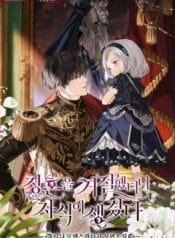On the eve of the Second Servolang Armistice Agreement, an emergency meeting was held among the Republic’s leadership.
The issue at hand was how to handle the Imperial princess who had expressed her desire for asylum in the Republic. While the atmosphere strongly favored returning her to the Empire, a new opinion emerged.
“Does the princess hold that much value?”
“This is unprecedented in the Empire’s thousand-year history. It could potentially cause internal turmoil within the Empire.”
“Even if we use the princess to promote Republican ideology, would Imperial citizens abandon their comforts to come to the Republic?”
Imperial citizens enjoy countless conveniences provided by the royal family’s magic. Though military strength between the nations has reached rough parity, the Republic’s standard of living lags far behind.
“That’s precisely why we must continue spreading Republican ideology without giving up. To those ignorant Imperial citizens.”
“Besides, we have black gold. It will develop infinitely beyond comparison to the Empire’s greenhouse. The Empire has been stagnant for a long time.”
“Indeed. Once we stabilize the power issue, humans won’t need to remain enslaved to the Empire.”
Unlike the Empire, which uses royal magic as its power source, the Republic relies on black gold. However, it’s less efficient and limited in quantity. The Republic’s citizens dream of raising black gold’s efficiency beyond Imperial magic.
“But what if the princess manifests her magic power?”
Through the noisy chatter, the mention of the princess’s magic manifestation reached Jens’s ears. Lost in thought, he flinched.
All eyes turned to Jens, who had changed his stance and recommended the princess’s asylum and enrollment in the Military Academy. Jens secretly sighed.
“The princess suffers from the Emperor’s Disease. It won’t be a problem.”
“Hmm? That fever-like illness? What does that have to do with anything?”
Despite the Empire being their main enemy, they knew so little about it. The leadership’s interest extended only to the Empire’s military buildup and strength, not their culture or history.
The Emperor’s Disease is a special type of fever. For Republic citizens or ordinary humans living in the Empire, it’s like a common cold that passes quickly. Though it strikes randomly without regard to seasons, treatment methods are well-established.
While prevention isn’t possible, the medicine is effective and affordable. When ordinary people catch this fever, they simply take medicine, rest, and recover quickly.
But there’s a reason this seemingly ordinary fever is called the Emperor’s Disease. For the Imperial royal family—the clan of mages who sustain the powerful Empire—this disease is fatal.
The symptoms are incomparably more severe than for ordinary people. The medicine is nearly identical to what commoners take, but failure to take it promptly can result in death.
Three hundred years ago, when this fever suddenly appeared, countless royals, including the Emperor, perished. After barely discovering that this disease with different symptoms was the same as the common fever, the royal family overcame it, only to face a new crisis.
Royals who contracted this fever saw their lifespans reduced to that of ordinary humans.
Just three hundred years ago, the royal mages were ageless with eternal life. But after this fever epidemic, they began to age and die like humans.
Even more devastating, using magic—the source of Imperial power—further shortened their already reduced lifespans.
Upon realizing this, the royal family established the “greenhouse,” known as Evighkeit Palace, but…
Jens answered in a monotone voice.
“Even if the princess manifests her magic, she cannot individually wield enough power to threaten the Republic. Being an Emperor’s Disease patient, her lifespan shortens each time she uses magic.”
“What? Then she’s useless.”
“Correct. She cannot be utilized as a military weapon.”
Murmurs arose from those who had supported the princess’s asylum. They thought of the royal family—mages—as omnipotent beings. Perhaps they were before 300 years ago, but not anymore.
“But she’s only sixteen, isn’t she? If we persuade her properly, wouldn’t she sacrifice herself for the Republic? She must have hated her homeland terribly to come here.”
Disgusting words reached his ears. But Jens maintained his expressionless face, staring at the water glass before him. With the sea calm, the water in the glass remained still.
In this gathering of high-ranking officers, luxurious transparent glasses were placed aboard the ship. He needed to remain calm like a frozen sea, revealing nothing. Both for himself and the princess.
But even knowing the Republic planned to use her this way, she probably wouldn’t care at all.
Wasn’t she the girl who cut her own throat without flinching, like crushing an insect? Her casual mention of his weakness to Schaefer seemed not from thoughtlessness but from genuine indifference to her own death.
She was truly contradictory. She came to the Republic to live, yet treated her life with contempt. She disliked being used through marriage, yet calmly demanded marriage from him.
Jens tapped the hard case at his feet. Inside lay the carefully preserved wax cylinder. Though he should submit it as evidence from the interrogation, Jens felt no reason to do so.
‘It’s a private deal between the princess and me.’
Never particularly loyal to the military, Jens enjoyed this small deviation.
The command headquarters, currently drunk on victory, wouldn’t question the absence of recorded evidence in his interrogation report, trusting his name alone.
Or was there even anyone who would examine it? These people cared nothing for the princess’s circumstances, their eyes red with thoughts of exploitation.
The room buzzed with noisy chatter. But with the seeds he had planted, they would soon conclude in favor of the princess’s asylum. He just needed to slightly manipulate the calculations.
Jens nudged his hard case with his foot, arranging it. The frozen sea outside the glass remained unbroken.
* * *
The Republic’s flagship Ceres was prepared as the venue for the Second Servolang Armistice Agreement. The young man boarding the Ceres had striking golden hair and deep blue eyes.
The direct Imperial royal lineage typically features faint-colored hair and purple eyes, yet the uninformed Republic youth vaguely imagine Imperial royalty with appearances like his.
Perhaps this impression comes from the ancient royal families that once existed on the Republic’s land, the Northwestern Continent. From those times until now, fairy tales commonly depict princes with such features.
The young man, whose cold impression matched his striking face, approached the ship with an openly fierce expression, stomping aboard.
“I am Lüse, Commander-in-Chief of the Republic of Il Seang, First Command Headquarters.”
“Where is my sister?”
Ignoring the hand extended by Lüse, the commander-in-chief of the Servolang Naval Battle, the golden-haired youth—the Empire’s 3rd Prince—asked fiercely. Lüse shrugged and gestured toward a seat.
“Please sit down.”
Glaring at the unresponsive Lüse, the 3rd Prince brushed aside the attendant’s hand and pulled out his own chair. Luten Aigis, the King of the Archipelago who had arrived earlier, watched the 3rd Prince with fascinated eyes.
After the 3rd Prince sat down, the Commander-in-Chief promptly took his own seat. Standing behind him, Jens felt strange looking alternately at the Empire’s 3rd Prince—a splendid young man—and the King of the Archipelago with his robust, gentle impression.
These were the two men the 17th Princess disliked, no, hated.
“I’m Jorge Enad. Let’s cut the unnecessary talk. Why has the agreement content changed? I’m sure you were notified that we would pay all the reparations you proposed for the 17th Princess. Are you trying some pointless push and pull?”
Jorge Enad, the Empire’s most likely crown prince candidate, was known for his cold and stern temperament. Yet now he was seething with anger that seemed hot enough to burn at a touch.
It was unusual for a prince to display such emotion. The Imperial attendants behind the prince were also visibly uncomfortable.
Seeing this behavior that contradicted public perception, Jens became convinced the princess was right. This wasn’t simply affection for a beloved sister.
Now that he looked closely, the different nature of the prince’s interest was clearly visible. If that was the case…
Jens glanced at the King of the Archipelago. But King Luten showed only curiosity about the situation when the 17th Princess was mentioned, displaying no particular knowledge about her personally despite the 3rd Prince’s visible anger.
Jens narrowed his eyes. While the princess clearly felt aversion toward the 3rd Prince, she hated this king even more.
Yet the king’s reaction to the princess differed from his expectations.
Something kept catching. A princess who hated the King of the Archipelago whom she had supposedly never met, and a king who seemed not to know her.
And her words about Jens himself—speaking with intimate knowledge, yet subtly misaligned.
“It’s Aira Merime’s own will.”
“How dare you!”
The Republic’s representative Lüse was completely at ease. After all, the princess’s asylum was nearly confirmed. Without her royal status, she would be just a pretty young girl. Lüse gestured to the promising soldier who had created this situation.
“Lieutenant Will.”
The gazes of both Luten, who hadn’t attended the first meeting, and Jorge, who had just arrived at the Servolang Strait, turned to him as he stepped forward. Luten looked him up and down with an expression suggesting he might have whistled had they not been in a conference room.
“So young.”






